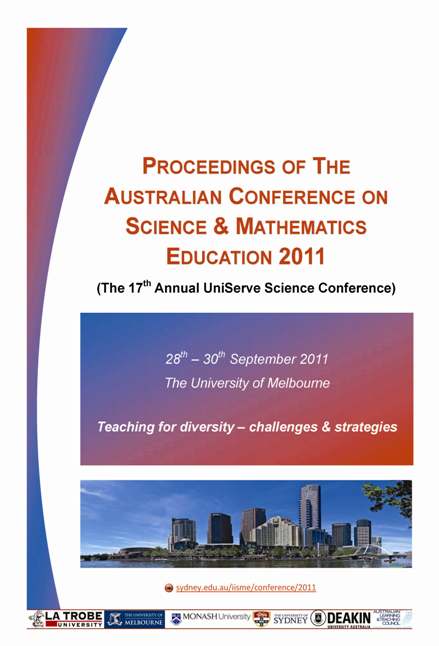Diversity in conceptions of incoming chemistry students in the context of changing syllabi
Abstract
The lowering of entry requirements for several programs of study in science and health has resulted in a greater diversity in academic ability amongst students entering first-year tertiary chemistry units, which are required for many different degree programs. The implementation of a new high school chemistry syllabus in Queensland in 2008 has simultaneously increased the range of prior learning experiences in secondary chemistry. Thus, it is vital for tertiary chemistry educators to focus on addressing both missing and mis-conceptions of incoming first-year students. We have profiled the existing conceptual understanding of incoming students enrolled in chemistry units at two major research-intensive tertiary institutions in Queensland in 2011. Concept inventory items were drawn from across a number of validated literature instruments. An alarming percentage of students were found to be unable to correctly answer simple questions relating to basic concepts. The concepts of bonding and states of matter, which are also well-known in the literature to cause difficulties, were particularly troublesome. Conceptual understanding across the two institutions is differentiated according to academic ability and program of study. The outcomes of this study demonstrate the need to develop strategies across the secondary-tertiary interface in preparation for yet another change in syllabus with the introduction of the national chemistry curriculum in 2013.Downloads
Published
2011-08-10
Issue
Section
Abstracts
